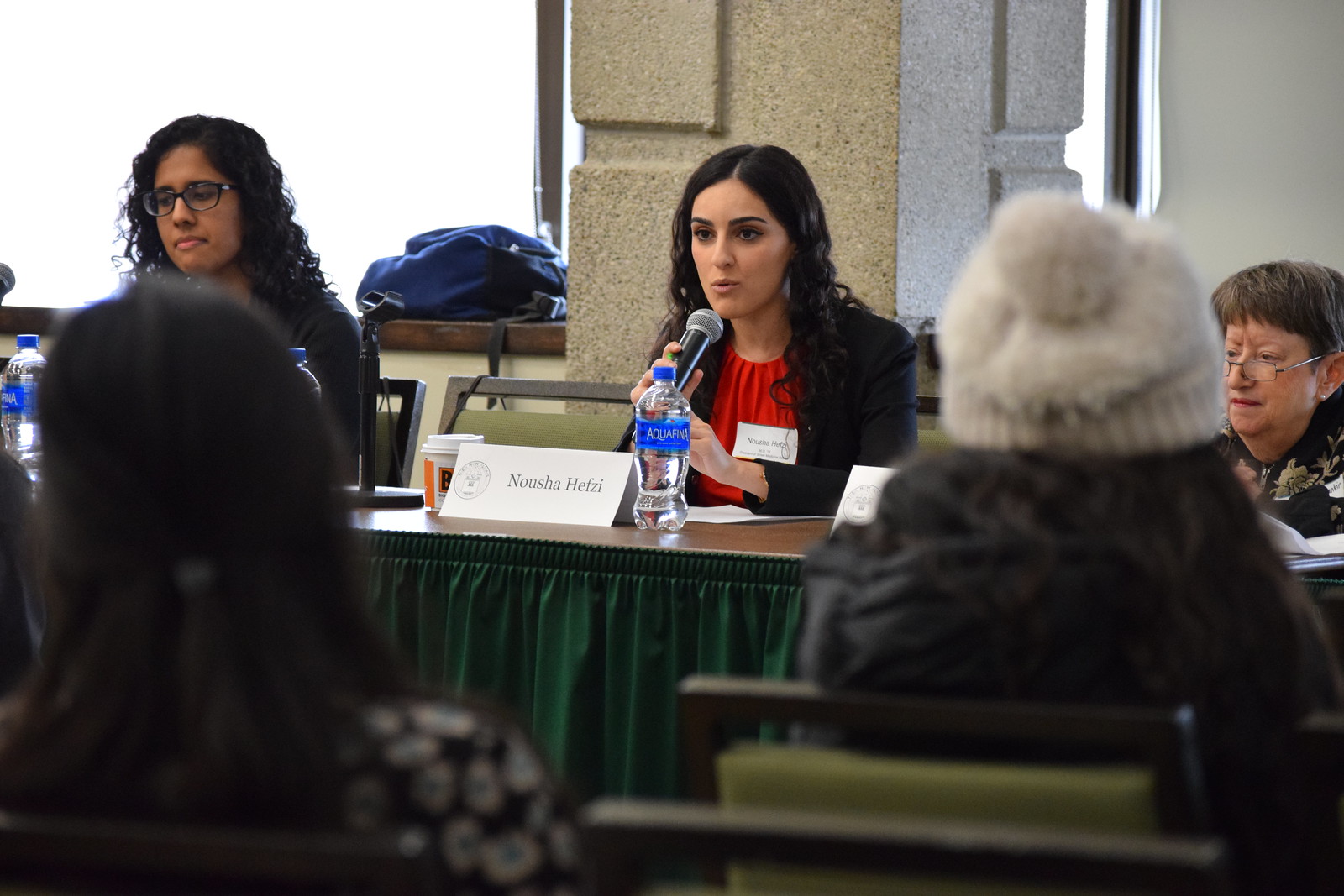Janet Hankin, Ph.D., retires after decades illustrating how social factors impact health care
In 1986, Dr. Hankin and her husband, Economics Professor, Allen Goodman, Ph.D., joined the faculty of Wayne State University. On May 26, they celebrated their retirements at a reception inside the Student Center, surrounded by colleagues, former students and friends. As they watched 15 minutes of prerecorded video messages from additional well-wishers who could not attend in person, it was clear what an impact they had made.
Hankin initially joined the University as an associate professor of obstetrics/gynecoology in the School of Medicine before moving to the Department of Sociology in 1989 where she remained throughout her career. A prolific researcher, Hankin served as an associate dean in the College of Liberal Arts from 1999-2001, and as chair of the sociology department four times, most recently in 2013-2015.
In 2008 she served as chair of the Medical Sociology Section of the American Sociological Association, where she received a Robert Wood Johnson grant to edit a special issue of The Journal of Health and Social Behavior entitled, "What Do We Know? Key Findings from 50 Years of Medical Sociology."
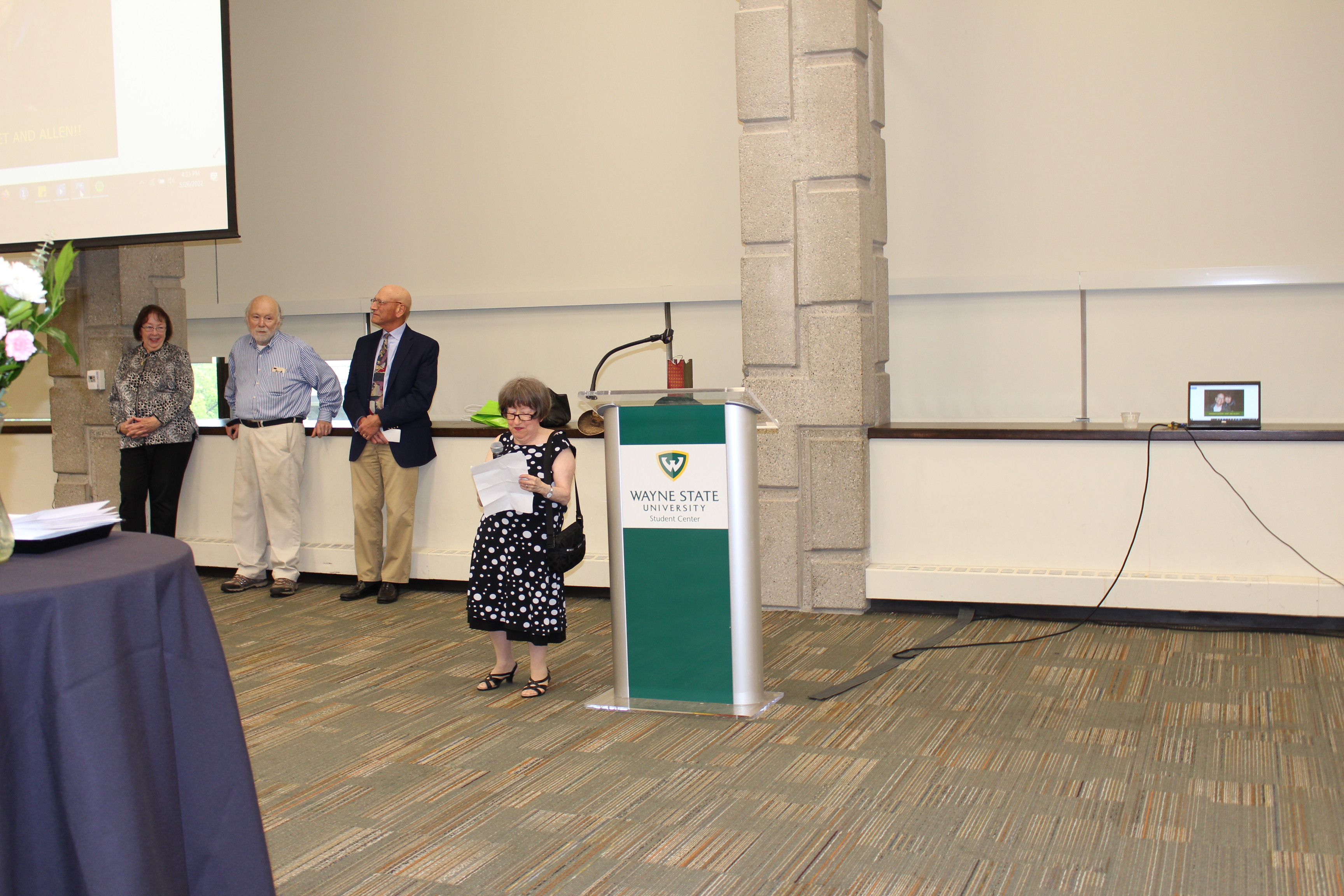
Looking back at her 36 years at Wayne State University, Hankin said the key lesson she imparted to students was that social factors matter in health and health care.
"Every class, I was giving that message. Every discussion that we held had some connection to that," Hankin said. "Things like gender, race, ethnicity and social class are critical in terms of what your health is, as well as the kind of health care you receive. Marginalized patients face implicit discrimination. Even if you have insurance, we know that there are some underlying issues among providers and their treatment of patients."
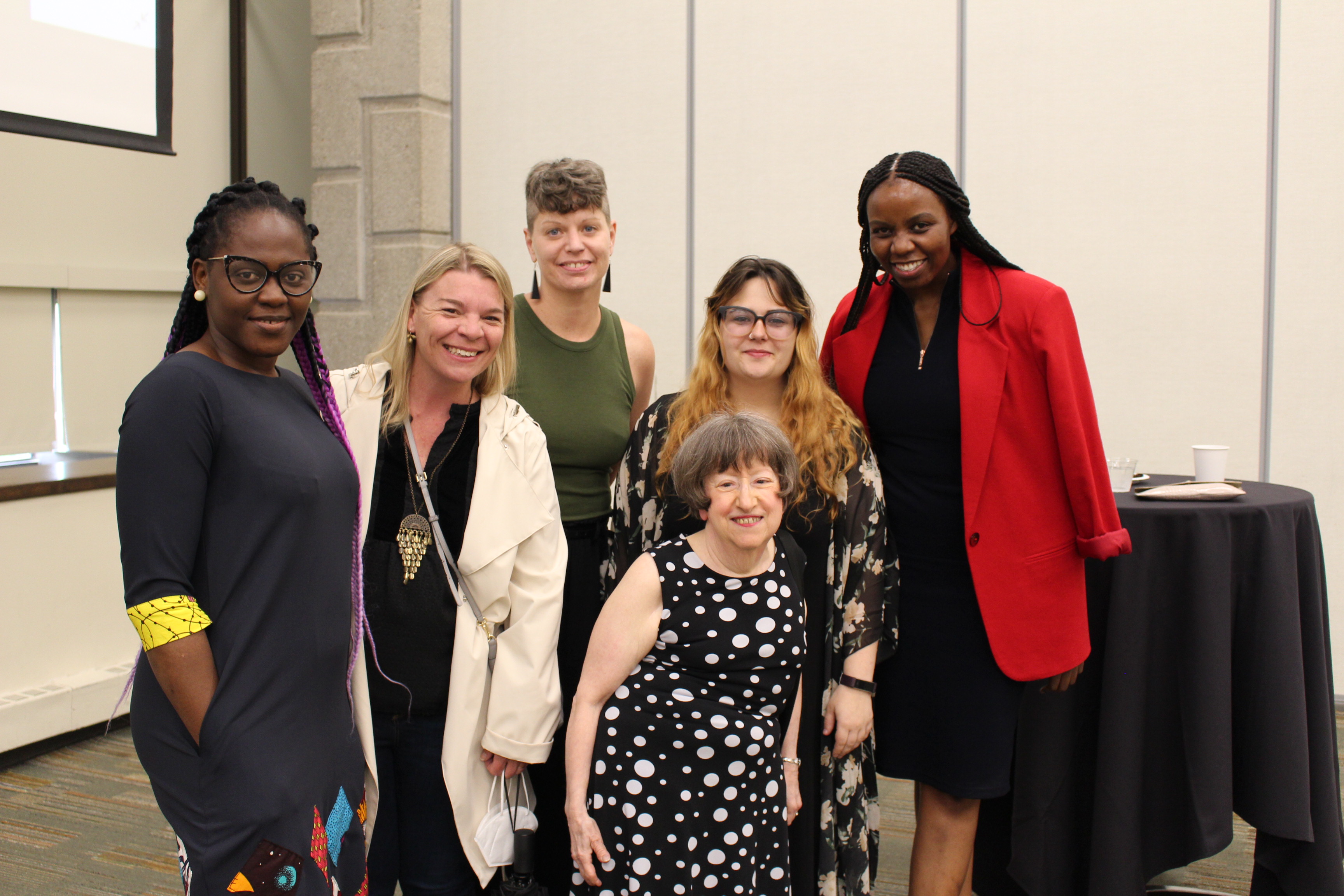
Hankin said that over the years, it has become more common to look at health care through a sociological lens than when she started.
"Students are more aware of biases that exist because there have now been so many studies and so many articles about it. It used to be, well, we can't talk about the fact that we won't prescribe this drug for a black patient because it's too expensive. People didn't want to talk about it, but now there are implicit bias scales."
Hankin said one of her proudest achievements was establishing the Sociology 4 Pre-Meds learning community in 2015. Sociology 4 Pre-Meds won the Learning Community of the Year Award in April 2022 and more than 700 undergraduate pre-med students have participated since its inception.
Hankin, who also facilitated an annual panel of alumni physicians discussing how they have encountered social factors in their real-life experiences, said that nurturing a sociological sense in future physicians is critical.
"Nearly every medical school now does training on implicit bias and inequality as part of their medical curriculum," Hankin said. "But there's been a feeling among many researchers who really feel that by the time students get to medical school, it may be too late for them to understand that. So we need to start early."
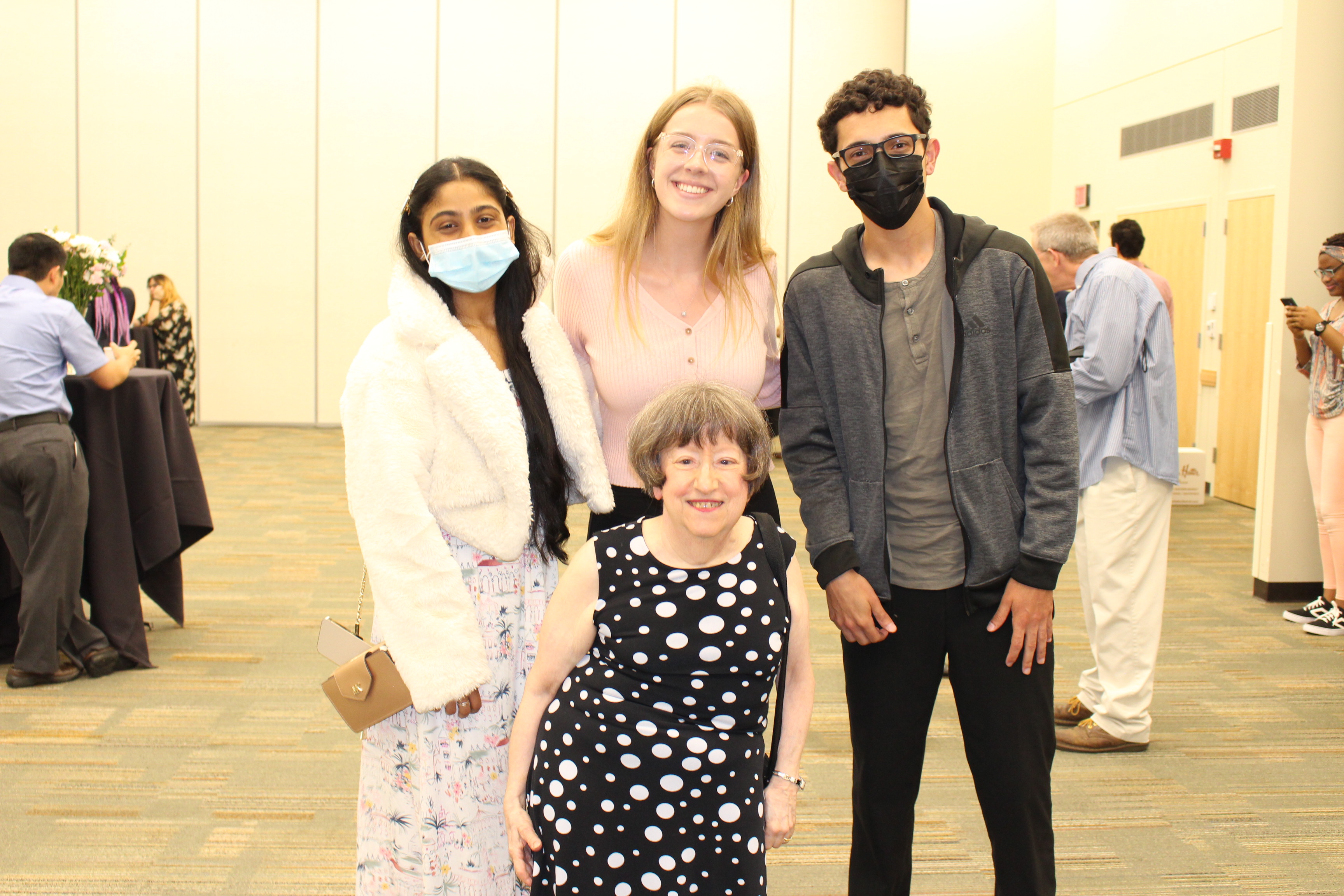
Students who served as mentors to members of the learning community recall Hankin going above and beyond educating undergraduates about why they should consider social factors in their medical careers.
One Sociology 4 Pre-Meds mentor, Majd Yahya said Hankin was an unparalleled mentor and instructor.
"She was the most generous, caring, and kindhearted individual that I have had the pleasure of meeting. Furthermore, Dr. Hankin continually sacrificed her own time to ensure that those around her had the opportunity to flourish. She provided the other peer mentors and me with a plethora of opportunities that enabled us to succeed. She continually encouraged us to participate in the learning community-related events, nominated us for learning-community of the year, and continually provided us with motivation to ensure that we did not give up on our pursuits and dreams."
Another mentor, Morgan Shield-Wykes said that Dr. Hankin was especially empathetic to students' evolving needs during the pandemic.
"In our class of about 75 students, Dr. Hankin did not let any student struggle alone, asking us mentors for consistent updates on struggling students, offering opportunities to make up what was lost, sending emails herself, and submitting many CARE reports," Shield-Wykes said. "Dr. Hankin made the process of learning Sociology fun by relating Sociological concepts not only to real-life examples but to her own life as well. Stories about the adversity she faced throughout her career and how she overcame them, which were so inspiring and entertaining; the students loved them."
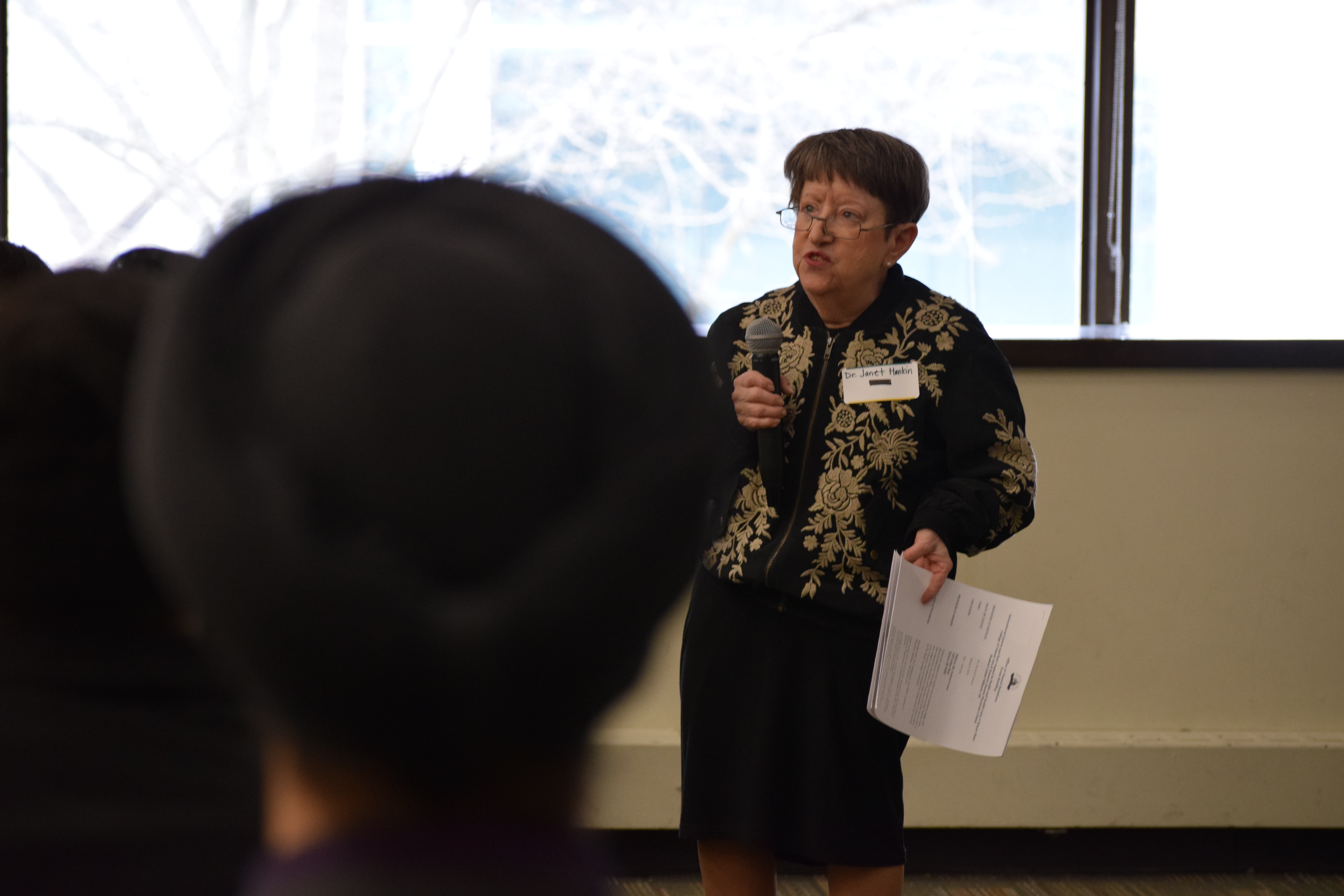
Aside from teaching, another major component of Hankin's career was research. Beginning in the 1980s, she spent countless hours researching the effects of alcohol on fetuses and pregnant women.
"One study lasting from 1990 to 1995 looked at the alcohol warning label that was put on all containers of alcohol in November 1989 and one of the questions of the study was whether or not pregnant women would decrease their drinking," Hankin said. "We compared data that we had on Hutzel Hospital outpatient women seeking care before the warning label went into effect and after it went into effect," Hankin said. "We found it had a modest effect on drinking and that there was a lag in when the impact occurred because the label only had to be fixed at the time that the beverage was bottled."
A second study Hankin participated in investigated whether educating mothers on the risks of alcohol in pregnancy would change their behavior in subsequent pregnancies.
Hankin said that her extensive research related to the risk of alcohol to pregnant women, specifically Black women in Detroit, directly showed her the impact of social factors on health care.
"That was really a key setting for my research because I was able to look at Black women and their drinking behaviors in the first study that looked at the alcohol beverage warning label. Hardly any other alcohol researcher had access to the kind of data we had over time and on a minority group population," Hankin said. "I was able when I was teaching to pull out all these examples of, okay, this is what's happening in Detroit, and this is what we know where the discrimination is and where the hardships are and how living conditions matter."
Later becoming a Ph.D. student of Dr. Hankin, Sandra King, Ph.D. '22 was serving as Coordinator of the Fetal Alcohol Syndrome Prevention Project at the Detroit Health Department (DHD) in 2007 when she met Hankin who was serving on the Fetal Infant Mortality Review-Case Review Team.
King said she admired her passion both inside and outside academia.
"I was immediately impressed with her style and confidence. She was passionate, acutely familiarized, and highly knowledgeable of the complex subject matter at hand. Dr. Hankin's straightforward recommendation led to expanded Medicaid coverage for compromised mothers, something I have not seen emerge from that review team since then."
In 2016, Goodman and Hankin endowed a major annual scholarship to graduate students in their respective departments for research in health economics and health sociology. The Allen Goodman and Janet Hankin Endowed Scholarship in Health Economics/Health Sociology Award will ensure that Dr. Hankin's legacy will live on in the Department of Sociology for many years to come.
